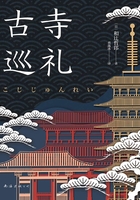The spasmed body stilled, relaxed; Dane turned onto his back, let his arms float wide and limp in spite of the pain. Wet-lashed, he stared --up at the soaring vault of the sky. This is it; this is Thy spear, that I in my pride begged for not an hour ago. Give me the chance to suffer, I said, make me suffer. Now when it comes I resist, not capable of perfect love. Dearest Lord, Thy pain! I must accept it, I must not fight it, I must not fight Thy will. Thy hand is mighty and this is Thy pain, as Thou must have felt it on the Cross. My God, my God, I am Thine! If this is Thy will, so be it. Like a child I put myself into Thy infinite hand. Thou art too good to me. What have I done to deserve so much from Thee, and from the people who love me better than they love anyone else? Why hast Thou given me so much, when I am not worthy? The pain, the pain! Thou art so good to me. Let it not be long, I asked, and it has not been long. My suffering will be short, quickly over. Soon I shall see Thy face, but now, still in this life, I thank Thee. The pain! My dearest Lord, Thou art too good to me. I love Thee! A huge tremor passed through the still, waiting body. His lips moved, murmured a Name, tried to smile. Then the pupils dilated, drove all the blue from his eyes forever. Safe on the beach at last, the two Englishmen dumped their weeping charges on the sand and stood looking for him. But the placid deep blue sea was empty, vast; the wavelets ran up rushing and retreated. Dane was gone.
Someone thought of the United States Air Force station nearby, and ran for help. Not thirty minutes after Dane had disappeared a helicopter took off, beat the air frantically and swooped in ever-increasing circles outward from the beach, searching. No one expected to see anything. Drowned men sank to the bottom and didn't come up for days. An hour passed; then fifteen miles out to sea they sighted Dane floating peacefully on the bosom of the deep, arms outstretched., face turned up to the sky. For a moment they thought he was alive and cheered, but as the craft came low enough to throw the water into hissing foam, it was plain he was dead. The coordinates were given over the helicopter's radio, a launch sped out, and three hours later returned. Word had spread. The Cretans had loved to see him pass, loved to exchange a few shy words. Loved him, though they didn't know him. They flocked down to the sea, women all in black like dowdy birds, men in old-fashioned baggy trousers, white shirts open at the collar and sleeves rolled up. And stood in silent groups, waiting.
When the launch came in a burly master sergeant sprang out onto the sand, turned back to receive a blanket-draped form into his arms. He marched a few fleet up the beach beyond the water line, and with the help of another man laid his burden down. The blanket fell apart; there was a high, rustling whisper from the Cretans. They came crowding around, pressing crucifixes to weather-beaten lips, the women softly keening, a wordless ohhhhhhhh! that had almost a melody in it, mournful, patient, earthbound, female. It was about five in the afternoon; the barred sun was sliding westward behind the frowning cliff, but wasstill high enough to light up the little dark cluster on the beach, the long, still form on the sand with its golden skin, its closed eyes whose lashes were spiky from drying salt, the faint smile on the blued lips. A stretcher was brought forward, then all together Cretans and American servicemen bore Dane away.
Athens was in turmoil, rioting crowds overturning all order, but the USAF colonel got through to his superiors on a special frequency band, Dane's blue Australian passport in his hand. It said, as such documents do, nothing about him. His profession was simply marked "Student," and in the back under next of kin Justine's name was listed, with her London address. Unconcerned by the legal meaning of the term, he had put her name because London was far closer to Rome than Drogheda. In his little room at the inn, the square black case which housed his priestly implements had not been opened; it waited with his suitcase for directions as to where it should be sent.
When the phone rang at nine in the morning Justine rolled over, opened a bleary eye and lay cursing it, vowing she would have the bloody thing disconnected. Because the rest of the world thought it only right and proper to commence whatever they did at nine in the morning, why did they assume the same of her?
But it rang, and rang, and rang. Maybe it was Rain; that thought tipped the balance toward consciousness, and Justine got up, slopped reeling out to the living room. The German parliament was in urgent session; she hadn't seen Rain in a week and hadn't been optimistic about her chances of seeing him for at least another week. But perhaps the crisis had resolved, and he was calling to tell her he was on his way over.
"Hello?"
"Miss Justine O'neill?"
"Yes, speaking."
"This is Australia House, in the Aldwych, you know?" The voice had an English inflection, gave a name she was too tired to hear because she was still assimilating the fact that the voice was not Rain's.
"Okay, Australia House." Yawning, she stood on one foot and scratched its top with the sole of the other.
"Do you have a brother, a Mr. Dane O'neill?"
Justine's eyes opened. "Yes, I do."
"Is he at present in Greece, Miss O'neill?"
Both feet settled into the rug, stood braced. "Yes, that's right," It did not occur to her to correct the voice, explain it was Father, not Mister. "Miss O'neill, I very much regret to say that it is my unfortunate duty to give you some bad news."
"Bad news? Bad news? What is it? What's the matter? What's happened?" "I regret to have to inform you that your brother, Mr. Dane O'neill, was drowned yesterday in Crete, I understand in heroic circumstances, performing a sea rescue. However, you realize there is a revolution in Greece, and what information we have is sketchy and possibly not accurate."















